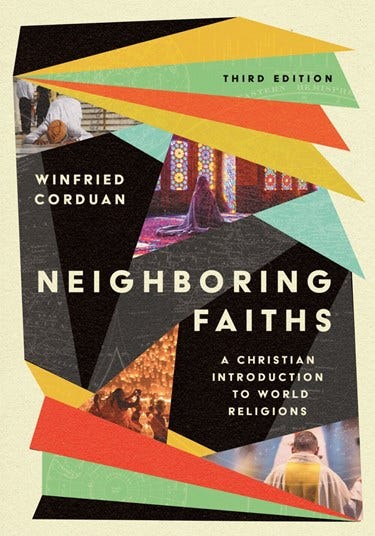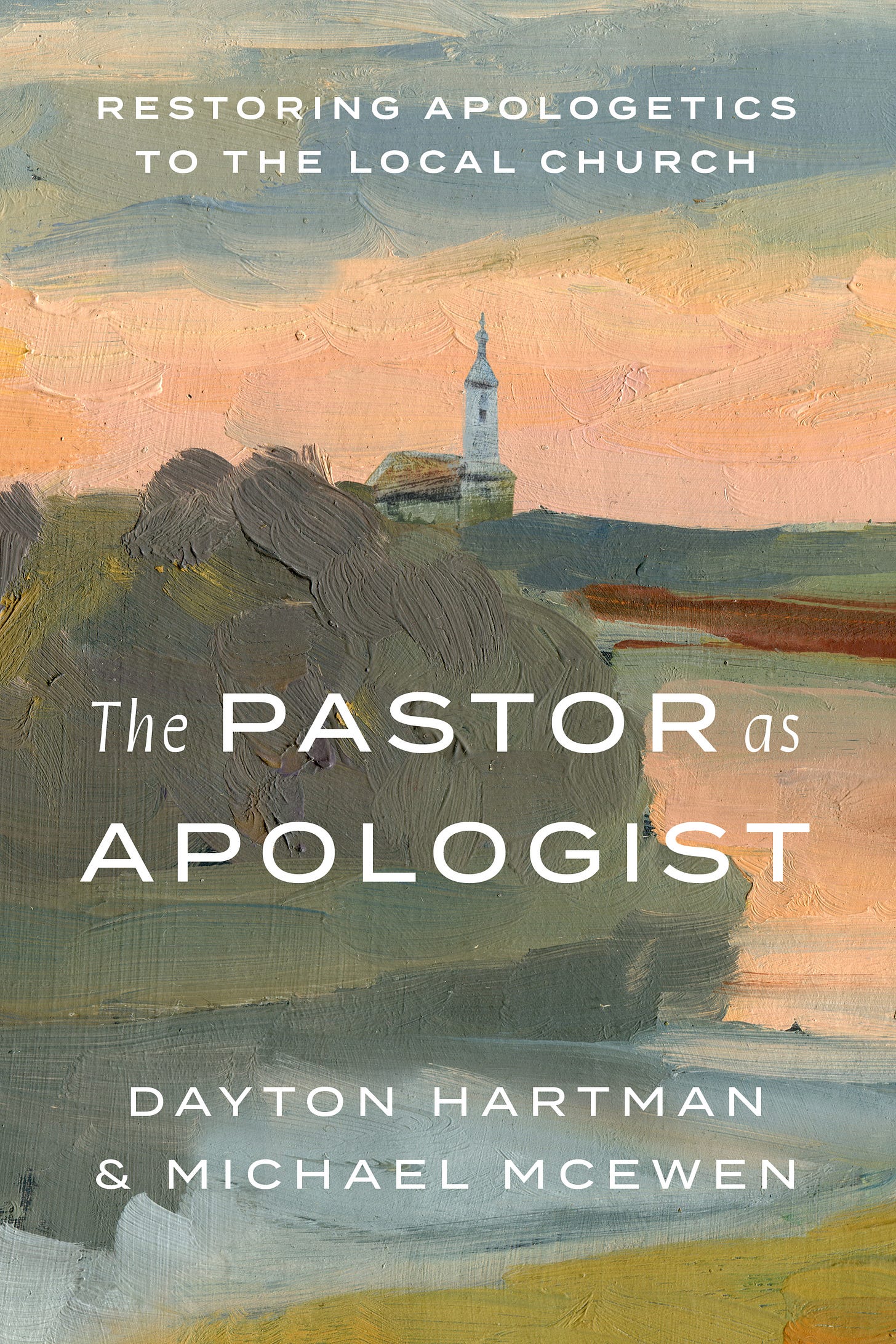As I started attending graduate school in philosophy at Wayne State University in 1994, the Euthyphro Dilemma was on my mind. Does God, say, command something because it is moral, or is it moral because God commands it? I knew I wanted to write on this topic in my dissertation, but that would be a few years on.
First I had to do a fair bit of coursework. Wayne State’s philosophy program was a rigorous one, treating graduate students like they need a broad exposure to all the branches of philosophy. I didn’t realize when I first started attending Wayne State that it was a famous department in its way. Back in the late 1950s it was quite the place to be if you wanted to study analytic philosophy. The department sported such luminaries as Alvin Plantinga, Héctor-Neri Castañeda (who founded the philosophy journal Noûs while there in 1967), Edmund Gettier, George Nakhnikian, and more.
It was especially interesting to me that Plantinga had taught there. I knew of Plantinga, of course, a quite significant Christian philosopher. It was heartening to find out that he had taught at Wayne State years before, after having graduated from Yale and before going back to his alma mater Calvin to teach and later at Notre Dame. In his book God and Other Minds, he makes reference to a dingy parking lot at Wayne State where he got the inspiration for the book. I’ve probably been in that dingy parking lot! Interestingly enough, in that book by Plantinga, he discusses various arguments for God’s existence, but leaves the moral argument out. Years later he would come to think of it as a strong argument indeed, but earlier in his career he had not.
Wayne State was an ideal place to study philosophy. I got to study with the metaphysician Larry Lombard, a philosopher of language Mike McKinsey, a congenial history of philosophy professor Herb Granger, a Quine-trained Harvard graduate Bill Stine, ethicist extraordinaire Bruce Russell, the brilliant curmudgeon Larry Powers, and others. I also had the privilege of studying alongside a number of really fine fellow graduate students, including Sloan Lee, who had started the program the year before. A prodigious talent, Sloan was a vocal and bold Christian voice in the program, and we became dear friends and study partners.
Studying analytic ethics, the history of philosophy, philosophy of mind, philosophy of language, and lots besides was great preparation for the work I wanted to do on the Euthyphro Dilemma. But it took nearly five years to work through all the course work that Wayne State required. During that time, I largely had to hold in abeyance my desire to delve into questions pertaining to God and ethics.
The issue had come up a few times during my course work, though. I well recall sitting in the library reading for an ethics class when I first came across George Mavrodes’ “Religion and the Queerness of Morality.” (By “queerness” he just meant oddness, nothing pertaining to sexual orientation.) Until then I had found my ethics readings interesting, but I had the nagging sense something was missing. I couldn’t quite resonate with what I was reading. But then I read Mavrodes, and it was epiphanous. It scratched where I itched. That was a good day!
Mavrodes argued that the existence of something like authoritative moral obligations make for an odd fit in a “Russellian world,” a world whose ultimate constituents are atoms and molecules. Where would the authority of such duties arise? A theist would have little difficulty accounting for such binding prescriptive authority, but naturalists, he argued, are hard pressed to provide a good explanation. At long last I read an ethicist who articulated the sort of intuition that I couldn’t shake. This excited me all the more to explore such topics, but it would have to wait until after I finished my course work and preliminary exams.
I still remember the sunny spring day I left my apartment on campus with a binder in hand to go to the library to officially begin my research for my dissertation on God, ethics, and the Euthyphro Dilemma. I found one article after another, made manual copies, punched holes in them, and began assembling them into a binder. That day I had the distinct sense that an exciting new chapter had begun.
It was a bit of a dicey proposition to write on this topic at Wayne. Despite that Plantinga had been there, and Sloan as a fellow graduate student, it was largely a secular environment, at times at least implicitly hostile to religious faith. Besides Bruce Russell, none of the professors seemed particularly interested in questions about theism or supernaturalism. Something like naturalism seemed to be the operative assumption most of the time. (Bruce has debated William Lane Craig twice on God’s existence.) Robert Audi and Paul Moser, Christian philosophers, had visited as guest speakers, but the daily fare provided healthy, heaping doses of naturalistic perspectives. A sort of property dualism and occasional hints of Platonism were the only typical, mild exceptions.
Although at the time I would have appreciated more believers in the department, and eventually a few more graduate students who were believers did come along, in retrospect I’d venture to guess that the largely secular environment did accomplish some good. I certainly couldn’t be accused of working in an echo chamber where my religious convictions were concerned. I received precious little affirmation for the sort of work I was interested in doing. I had to operate against the grain, and on plenty of days I had to encounter the palpable feeling that several of my teachers and fellow students thought I was wasting my time. It helped toughen me up for the world of philosophy.
Bruce Russell had agreed to direct my dissertation, and I remain greatly appreciative of him to this day. He’s a really good philosopher from whom I benefited immensely. The same could be said for most all my teachers, especially Mike McKinsey. Although we didn’t share the same worldview, McKinsey was an incredible philosopher and exacting teacher who helped me navigate the philosophy of language better than anyone else could have. I came to adore him. The only reason he wasn’t on my committee was because he was at Oxford the year I had to select it (while I house sat for him that year). The day I defended my dissertation, I told him that I considered him an unofficial member of the committee nevertheless.
Bruce was tough but always fair, which is all I could ask for. My dissertation, as I knew it would be, was on the Euthyphro Dilemma. A later version of the dissertation would be Good God: The Theistic Foundations of Morality, co-written with Jerry Walls, my first significant foray into theistic ethics and moral apologetics. Next time I will discuss the dissertation.
— David Baggett is Professor of Philosophy and Director of the Center for the Foundations of Ethics at Houston Christian University. He is the author or editor of about fifteen books, most recently Ted Lasso and Philosophy: No Question Is Into Touch edited with Marybeth Baggett.
Image: Del arte at English Wikipedia, CC BY-SA 3.0
[sponsored]
Learn more and register here: https://womeninapologetics.com/2024wiaconf.
Neighboring Faiths
A Christian Introduction to World Religions (3rd ed.)
World religions are not merely abstract sets of doctrinal beliefs. They are embodied worldviews and practices lived out by real people around us. Encounters with these neighboring faiths often challenge our own beliefs and traditions, making us think more deeply about our faith commitments.
For all who want to understand the religious faiths of their neighbors, Winfried Corduan offers an introduction to the religions of the world. This classic text covers major as well as lesser known religions, including Judaism, Islam, Zoroastrianism, African traditional religions, Native American religion, Hinduism, Buddhism, Jainism, Sikhism, Baha'i, Chinese popular religion, and Shinto and Japanese religions.
Neighboring Faiths emphasizes not just formal religious teachings but also how each religion is practiced in daily life. Dozens of photographs, charts, and maps help illustrate how the faiths have developed and how they're lived out today. Corduan offers specific insights into what to expect from encounters with adherents of each religion and suggestions for how Christians can engage them in constructive dialogue. Each chapter offers lists of key points, ideas for term papers, and recommended resources to help students, instructors, and small groups go deeper.
Neighboring Faiths is an indispensable guide for Christians seeking an informed, empathetic perspective on different religions and the people who practice them.
“Neighboring Faiths is the best Christian introduction to the world’s religions available today. And given that the Western world is now a truly global society with all the religions present, it is imperative that Christians have a basic knowledge of the religions of the world. While Winfried Corduan is deeply committed to the unique truth of historic Christianity and evaluates the different religions from a Christian perspective, he nevertheless treats each religion with fairness, respect, and empathy. There is no better book to read and study on this critical topic than Corduan’s work. Every school, church, and personal library should have this book.”
— Kenneth Samples, senior scholar with Reasons to Believe
Find Neighboring Faiths at InterVarsity Press, Amazon, Barnes & Noble, Christianbook.com, and other booksellers.
The Pastor as Apologist: Restoring Apologetics to the Local Church
In The Pastor as Apologist, Dayton Hartman and Michael McEwen attempt to recapture the pastoral role of apologetics. By ably speaking to their congregations about apologetics issues, pastors can be the first line of defense against doubt and attacks on the faith. Interweaving historical, theological, and philosophical attention to the conversation, Hartman and McEwen argue that every pastor is an apologist who then invites the church to embody its apologetic identity.
“Among the many responsibilities of a pastor, the discipline to give a reason for our Christian hope remains central to our preaching, shepherding, and counseling. This, as Hartman and McEwen suggest, is pastoral apologetics. For a discipline that sometimes garners the reputation of mere intellectual defensiveness, Hartman and McEwen offer a winsome and humble approach for pastors that is biblically grounded, historically informed, anchored in the confidence of Christ’s resurrection, and highly practical. As a seminary professor and pastor, I’m thrilled to see such a helpful resource to remind and equip pastors in the important task of defending the faith.”
—Benjamin Quinn, associate professor of theology and history of ideas and associate director of the Center for Faith and Culture, Southeastern Baptist Theological Seminary
See our recent excerpt from The Pastor as Apologist here.
Find The Pastor as Apologist at B&H Academic, Amazon, Barnes & Noble, Christianbook.com, and other booksellers.
The Worldview Bulletin thrives when readers subscribe. Sign up here to access all of our resources and support our work of commending and defending the Christian worldview. If you prefer to give a one-time donation, you can do so here at our secure giving site.
“I find The Worldview Bulletin very stimulating and would encourage all thinking Christians to read it.”
— John Lennox, emeritus professor of mathematics, University of Oxford, emeritus fellow in mathematics and philosophy of science, Green Templeton College, author of Cosmic Chemistry: Do God and Science Mix? (Lion)
“It has made such a difference to me to realise that my Christian faith is intellectually respectable.” — Duncan Cooke, M.D.
“The Worldview Bulletin shines a brilliant light of truth in a darkening world. These authors, who are experts in their field, consistently provide logical, rational, moral and most importantly biblical answers in response to the deceitful narratives we are bombarded with daily. I have found it a great source of enlightenment, comfort, and inspiration.”
— B. Shadbolt, New South Wales, Australia
Advertise in The Worldview Bulletin
Do you have a ministry, book, course, conference, or product you’d like to promote to 7,486 Worldview Bulletin readers? Click here to learn how. We’re currently booking for July-August.
Get in Touch
Is there a topic or question you’d like us to address? Feel free to let us know at worldviewbulletin@gmail.com.




